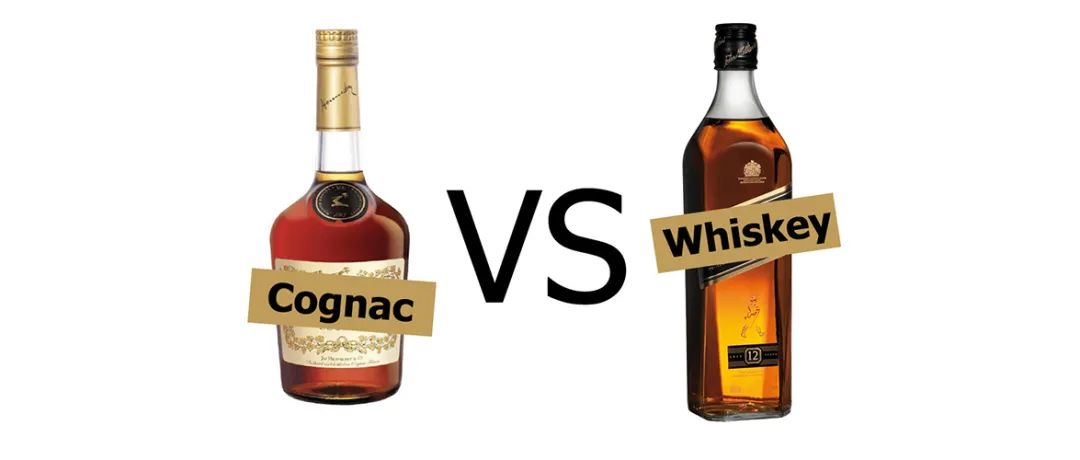To understand whisky, you must know the barrels used, because most of the flavor of whisky comes from wooden barrels. To use an analogy, whisky is tea, and wooden barrels are tea bags. Whiskey, like Rum, is all Dark spirit. Originally, all distilled spirits are almost transparent after distillation. The reason why they are called “Dark spirit” is because they extract the taste and color from the wooden barrel. To understand its taste Style, you can choose a wine that suits you. This time, it is also easy to be confused by ordinary people, the difference between whisky and brandy. Don’t say you don’t understand after reading it!
Sometimes when I come to the wine shop, whether it is a light drink or a free drink and want to order some spirits, I may not know how to choose Whisky and Brandy, whether I want a black card or a Remy. Not to mention the brand, both are distilled spirits with a degree of more than 40 degrees. In fact, Whisky and Brandy are also easy to distinguish from the taste buds. Generally speaking, the aroma and taste of Brandy may be stronger and sweeter, because of the different brewing materials.
Whiskey uses grains such as malt, barley, wheat, rye and corn, while Brandy uses fruit, mostly grapes. Most whiskeys are aged in wooden barrels, but Brandy is not necessarily. If you have been to the French wine region, some areas rich in apples and pears have Brandy. They may not be aged in wooden barrels, so the color is transparent. This time I mainly talk about Brandy, which will be aged in wooden barrels and brewed with grapes. Because it is brewed with fruit, Brandy will be a little more fruity and sweet than whisky.
There are differences in the distillation process. Whisky only uses pot or continuous stills. The former has a stronger flavor, the latter is more suitable for mass production but the flavor is easy to lose; while Brandy uses the ancient Charente pot distillation. French (Charentais Distillation), the flavor is also relatively strong, Charente is the French province where the Cognac (Cognac) area is located, and the Brandy produced in the legal production area of Cognac can be called Cognac (Cognac), the reason is equivalent in champagne.
The last is the barrel and the year. It is said that more than 70% of the flavor of Whisky comes from the barrel, while the different barrels used by Whisky in Scotland, such as bourbon and sherry barrels, are all used old barrels (Whiskey in the United States uses brand new barrels) oak barrels), so it inherits the flavor of the wine in which it was packed. As for Brandy, especially Cognac, the influence of oak barrels is also a top priority. After all, the taste and color come from the barrels, and the role of the barrels is like a tea bag. Moreover, Cognac stipulates that the raw materials used in the barrels must be oaks from 125 to 200 years old. Only two French oaks can be used for Cognac aging oak barrels – Quercus pedunculata and Quercus sessiliflora. Most of the barrels are made of Hand-made, so in terms of cost, Cognac is more expensive than Whisky.
In the process of aging, there are gains and losses. Whisky has “Angel’s Share” for the evaporation of wine, and Cognac also has “La Part des Anges” with almost the same meaning. In terms of age, Scottish law stipulates that it can be called a Whisky after it has been aged for more than three years in oak barrels. Prefer to be marked with “NAS” (Non-Age-Statement).
As for Cognac, there is no need to mark the year. Instead, it is marked with VS, VSOP, and XO. VS means 2 years in wooden barrels, while VSOP is 3 to 6 years, and XO is at least 6 years. In other words, from the point of view of commercial and regulatory constraints, it is possible that Whisky with a marked year will generally age longer than Cognac. After all, 12-year-old Whisky is now regarded by drinkers as a general drink, so how can 6-year-old Cognac be considered a drink? matter. However, some French winemakers believe that Cognac can reach its peak after 35 to 40 years of barrel aging, so the famous Cognac has this level in most years.
Post time: Nov-01-2022

